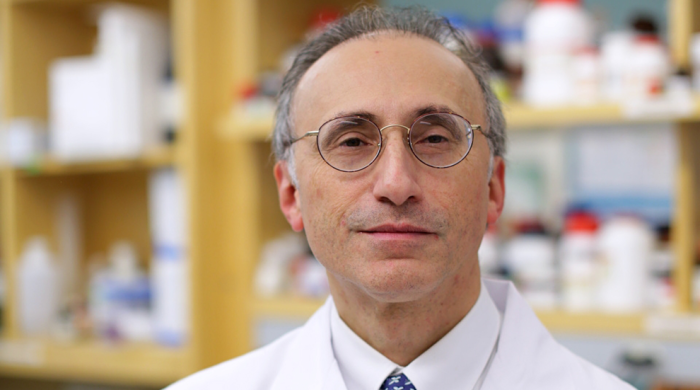
BME7900 Seminar Series - Shahin Rafii, MD
Location
Description
We welcome our next speaker in our series, Dr. Shahin Rafii. He is part of the Division of Regenerative Medicine and the Ansary Stem Cell Institute at Weill Cornell Medicine. He is also applying for Field Membership with the Meinig School of Biomedical Engineering. Engineering Adaptable and Hemodynamic Endothelium for Organogenesis and Tumorigenesis Abstract: Normal organoids and tumoroids are biological replica of organ-specific tissues. Nonetheless, organoid cultures are devoid of interactive stroma, such as vascular niche, which diminishes the physiological relevance of this technology. Tissue-specific vascular endothelial cells (VECs) represent niche cells, that by supplying key organotypic angiocrine signals regulate the metabolic and patterning during regeneration and tumorigenesis. However, current sources of adult VECs are inefficient in arborizing, perfusing, and adapting to organoids. To circumvent these hurdles, we have engineered human tubulogenic adaptable endothelial cells for mechanistic and therapeutic applications. To achieve this goal, we have transiently expressed the embryonic-restricted ETS-variant-2 transcription factor (ETV2) along with defined Laminin-Entactin-CollagenIV (L.E.C) matrix, “Reset” adult human mature VECs into adaptable and hemodyamic-VECs (R-VECs). In 3D defined matrices, which do not have the constraints of bioprinted synthetic scaffolds, (such as Organ-on-Chip models), R-VECs self-assemble into branching vascular networks within scalable microfluidic chambers, which are capable of transporting human blood without clotting or leakiness. In vivo, R-VECs self-organize into durable pericyte-coated vessels that anastomose durably for months to the host circulation. R-VECs directly interact with cells within 3D co-cultured organoids, removing the need for restrictive synthetic semipermeable membranes that are required for Organ-on-Chip systems, therefore providing a physiological platform for vascularization, which we have coined as ‘Organ-On-VascularNet’ platform. R-VECs functionally perfuse glucose-responsive insulin-secreting human pancreatic islets, vascularize decellularized rat intestines and physiologically arborize any healthy or cancerous organoids. R-VECs establish an adaptive vascular niche that differentially adjusts and conforms to organoids and tumoroids in a tissue-specific manner. Our Organ-On-VascularNet model will permit metabolic, immunological and physiochemical studies and screens to decipher the crosstalk between organotypic endothelium and parenchymal cells for identification of determinants of vascular heterogeneity, and could lead to advances in therapeutic organ repair and tumour targeting. Bio: Shahin Rafii, MD is the Arthur B. Belfer Professor of Genetic Medicine, Director of Ansary Stem Cell Institute and Division Chief of Regenerative Medicine at Weill Cornell Medicine. He is a physician-scientist, who has conceived of the foundational knowledge of blood vessel endothelial cell organotypic development and heterogeneity, enabling translation of the pro-regenerative functions of vascular cells to clinic. He pioneered the paradigm-shifting concept that endothelial cells within each organ are highly specialized. He devised genetic models to prove that endothelial cells form vascular niches that by supplying instructive angiocrine factors choreograph stem cell self-renewal, organ repair or aberrantly incite malignant stem cells. He has identified previously unknown transcription factors that reprogram human non-vascular cells into endothelial cells. He has discovered several organotypic transcription factors that confer generic endothelial cells with their tissue-specific vascular signatures. He has engineered innovative technologies to manufacture the first-in-man infusional endothelial cells to repair injured organs. He has founded vascular biotechnological companies enabling phase III trials for infusion of bioengineered endothelial cells into cancer patients treated with aggressive chemotherapy mitigating intestinal and hematopoietic injuries. Recently, he has engineered adaptable human endothelial cells that functionally vascularizes organoids, including human pancreatic islets, setting the stage for clinical trials to treat diabetes. Rafii's translational work to repair tissue damage by implantation of pre-endothelialized mini-organs has opened a new chapter in long-awaited vascular therapeutics.

